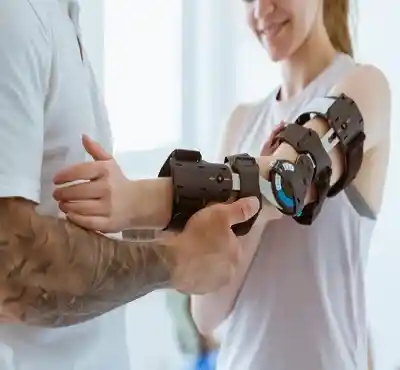Litigation refers to the process of taking legal action through the court system. It is a broad term for a generally complex and time-consuming process. Litigation refers to when two or more parties dispute and a case requires further legal judgment.
Through litigation, legal disputes can be resolved in courts of law. Different types of issues can be resolved through litigation. These include personal injury, breach of trust, matrimonial distress, and more. A personal injury lawyer can help people move forward when parties do not reach a quick settlement.
What Are The Different Types Of Litigation Cases?
Litigation is not just about filing a lawsuit. It describes the entire legal process from the point of filing the initial complaint with the court and notifying the defendant. It involves all legal proceedings, discovery, motions, and other complex steps—each with its own set of rules—after filing a lawsuit. Some of the cases that can be resolved through litigation are:
- Commercial disputes (e.g. a claim for a breach of contract)
- Matrimonial matters (e.g. a spousal claim in a divorce)
- Claims against the state (e.g. a judicial review for planning)
- Personal injury claims (e.g. a monetary claim arising from an accident)
- Employment disputes (e.g. a claim for wrongful dismissal or termination)
The litigation procedure generally has four stages: pleadings, discovery, pre-trial, and trial. However, the stages may vary depending on the type of litigation case and whether or not it involves extra steps such as appeals.
What Does Litigation Mean In Injury Cases?

Most personal injury cases are settled out of court by insurance companies. However, there are times when a victim may have to file a personal injury lawsuit if the parties do not reach an agreement.
Filing litigation claims can be complicated and burdensome. It can be especially difficult for those who do not have a deep understanding of the law or legal processes.
What Are The Categories Of Injury Claims?
Personal injury cases are generally categorized by how fault is determined:
- Intentional
- Negligence
- Strict liability
A person may face different challenges depending on which category their case falls under. The plaintiff needs to have the necessary evidence and documents proving the defendant’s liability.
Proving liability, or who is at fault and how, is the primary challenge a litigant will face. It can become even more complex when more than two parties are involved in a case, or when the plaintiff is also partially responsible for the accident.
Is Litigation The Same As A Lawsuit?
Litigation and lawsuits are related, but are not the same thing. Litigation is the process of choosing legal action for a dispute between two or more parties. A lawsuit refers to a claim or a dispute that is presented before a court of law.
What Are The Critical Elements Of Personal Injury Litigation Cases?
It is important to understand the elements that exist in personal injury cases if you are involved in one. Some of these key elements of personal injury litigation are:
- Discovery: This is the stage of gathering evidence and all necessary documentation. It may include answering questions under sworn oath. At this stage, both parties can demand proof and evidence from the other party, and each party must disclose relevant evidence unless otherwise protected by law. The discovery stage can take months or even years to complete.
- Motions: A motion is a written question for the presiding judge where the answer affects the case. You can file a motion for a variety of reasons. One example is a pre-trial motion to dismiss, which asks the court to determine whether the complaint is legally valid.
- Expert witnesses: This is a type of witness, typically a professional with a specialized skill set, whose opinion can help explain the evidence in a case. An expert witness usually testifies or defends the claim in the courtroom. They may also write an official report or study, such as psychological evaluation.
- Hearings and trials: It’s not common, but some personal injury cases go all the way to trial. Your lawyer may start preparing for claims and litigations right after the initial filing of the lawsuit. The requirement of the number of hearings will differ depending on the case, but at the trial stage, a judge gives the final decision.
- Trial: The trial and final day of judgment play a crucial role. Your attorney will assist you throughout the process, and the judge will give their decision based on the evidence and proof presented at trial.
If parties are not satisfied after a judgment, they are free to file an appeal. It depends on the judge to overturn the decision or pass a new judgment in the case.
If your journey to pursuing compensation is a challenging one, The Law Offices of Samuel Fishman can make the legal process much smoother and less stressful for you. Call or contact us online to get started so you can focus on your complete recovery.
